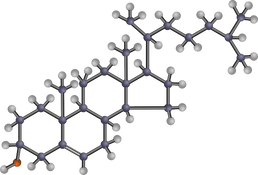Ronit Mor, NDThe Lipid-Heart Hypothesis For the last 40 years the dietary instructions from governments and other authoritative bodies have told us that saturated fat is bad because it leads to clogged arteries, heart attacks and strokes. The theory goes like this:
 Americans took this message to heart and complied. Average fat consumption decreased, average blood cholesterol levels decreased but the rate of heart disease has continued to rise; the cost of its treatment has continued to rise, and, worst of all – as of 2017, 30 million Americans have diabetes (~10% of the U.S. population), 84 million Americans have pre-diabetes, and we have an epidemic of obesity now afflicting over 93 million of the population. FACT: Over the years, billions of our tax dollars were spent in an attempt to prove this theory. Yet study after study has failed to provide definitive evidence that saturated fat intake leads to heart disease. FACT: Cholesterol has never been clinically demonstrated to cause a single heart attack. Artery Clogging Saturated Fats (Or Not) A meta-analysis, published in 2010 in the American Journal of Clinical Nutrition, examined 21 studies with 5-23 year follow up and a total of about 347,000 individuals, concluded: “There is no significant evidence for concluding that dietary saturated fat is associated with an increased risk of CHD or CVD.” A more recent study, the Women’s Health Initiative, the government’s largest and most expensive ($725 million) diet study yet, published in 2006 in the Journal of the American Medical Association, showed that a diet low in total fat and saturated fat had no impact in reducing heart disease and stroke rates in some 48,835 women who had adhered to the regimen for an average of 8 years. The Nurses’ Health Study which has followed 90,000 female health professionals, once again demonstrated no reduction in heart disease or cancer from a low-fat diet.
 So, What Is Cholesterol Anyway? Cholesterol is not a deadly poison, but a substance that is essential for all animal life. Without enough cholesterol our body cannot fully function. In fact, it’s so important that some of the cholesterol our liver excretes is recycled by the small intestine. Every last drop counts! It is found in the cell membrane of animal tissues and:
What Can Cause Elevated Cholesterol? Contrary to what most people think, only 25% or less of the cholesterol in our body is derived from our food. Our liver produces the vast majority of it. And of the cholesterol that we do eat, our body only absorbs about half of it! Our liver produces cholesterol as we need it and eliminates old, worn-out cholesterol from our body. So if our liver isn’t healthy and working as it should, that can cause elevated cholesterol levels. Plus regular bowel movements are key too– because if we are frequently constipated, cholesterol that our liver may be trying to eliminate can instead get reabsorbed through the intestinal wall back into circulation. The health of our arteries plays a major role. When we have inflammation in our blood vessels, it triggers our liver to summon cholesterol to the inflamed areas as a healing ointment. Oh, and by the way- chronic inflammation in our blood vessels is frequently caused by high glucose levels resulting from a large intake of refined carbs. And last but not least, dehydration plays a major role in increased levels of serum cholesterol. Low water intake quickly leads to dehydration and, in response, our body increasing its production of cholesterol to keep cell membranes moist and pliable, which allows tissues to exchange nutrients for waste in an efficient manner. Low water consumption also reduces the volume and the flow-rate of our blood, which may increase the risk of cholesterol accumulating in our arteries. It is estimate that upwards of 75% of Americans are chronically dehydrated so you do the math from here… How High Is “High Cholesterol”? It wasn’t that long ago that we were told anything above 280 mg/dl was too high. Then 250 mg/dl… then 220 mg/dl… then 200 mg/dl… in fact, many doctors are very pleased with 130-160 nowadays… Over the last few years the threshold has progressively been lowered and lowered – each time without scientific evidence to support the lowering of the threshold, and each time the decision to lower the threshold being taken by “experts” with links to the companies that make statins. Of course, each time the threshold is lowered, millions more people become eligible for cholesterol-lowering medications – massively increasing the market size for the drugs.
 People With High Cholesterol Live The Longest! FACT: 75% of people who suffer from a heart attack have normal levels of serum cholesterol. FACT: Low serum cholesterol has been correlated with higher mortality. FACT: Cholesterol has never been clinically demonstrated to cause a single heart attack. FACT: In women, serum levels have an inverse relationship with mortality from all causes. FACT: For every 1 mg/dl drop in cholesterol per year, there was a 14% increase in the rise of overall mortality. FACT: Many countries with higher average cholesterol have lower rates of heart disease. FACT: Low serum levels are a risk factor for several types of cancer. FACT: 25% of the body’s cholesterol is in the brain and studies have demonstrated higher rates of dementia in people with low cholesterol. Research also found a correlation between higher LDL and better memory in elderly patients. Most studies of old people have shown that high cholesterol is not a risk factor for coronary heart disease (see Medline database), for example:
Chemical War On An Imaginary Villain The only effective way to lower cholesterol is with drugs, but neither heart mortality nor total mortality have been shown to improve with those drugs. A 2015 study found that the “chemical war” against cholesterol using statin drugs was justified through statistical deception and the cover up of over 300 adverse health effects documented in the biomedical literature. Better safe than sorry, right? This is the logic that defines the grasp that the pharmaceutical industry has on our psyche. In the U.S. Alone, some 40 million people currently take statins. In 2016, the U.S. Preventive Services Task Force issued a new guidance that greatly expanded the statin-taking universe to 73 million Americans including teens and young adults! It seems that there are currently very few of us walking around with “acceptable” levels of artery-clogging sludge. As of 2017, the global cholesterol-lowering industry was worth $19.2 Billion and is currently forecasted to grow at 4.9% each year during the next five years. Which means that the industry will be worth $24.4 Billion in 2022. It does not matter how one manipulates the statistics, the results just aren’t there. In data gathered in 2009 from six trials, a review of the efficacy in lowering the risk of death with statins found virtually no difference between the treatment group and the control group. Here are a few quotes from studies that were carried out by independent universities and published in government reports, yet their findings are still ignored:
Selling Side Effects: Perhaps this would still qualify as better safe than sorry if these medications weren’t some of the most toxic chemicals willfully ingested, with at least 300 adverse health effects evident in the published literature so far, with at least 28 distinct modes of toxicity, including:
Beyond the known fact that statin drugs deplete the body of two essential nutrients: coenzyme Q10 and selenium, they are also highly myotoxic and neurotoxic. Since the heart is one of the most nerve-saturated muscles in the human body, these two modes of toxicity combined represent a ‘perfect storm’ of cardiotoxicity – a highly ironic fact considering statin drugs are promoted as having ‘life-saving’ cardioprotective properties. THE BOTTOM LINE
The Lipid-Heart Hypothesis is false. Our body must have saturated fats in order to function optimally. There is no connection between the intake of saturated fat and heart disease or stroke. But there is a connection between the currently recommended high carbohydrate diet and heart disease and between low levels of serum cholesterol and stroke. Cholesterol levels do not statistically correlate to heart disease and those with low levels have a higher risk of death from all causes (as well as higher risk of mental problems and several types of cancers) while high levels are linked to longevity. Statin drugs deplete the body of essential nutrients and have at least 28 distinct modes of toxicity, including myotoxicity and neurotoxicity. The low fat diet is the worst dietary advice in the last 40 years and, combined with highly toxic drugs, is most likely the main cause of our epidemics of heart disease, diabetes and obesity, just to name a few. At the end of the day, we are each responsible for our own health and, with the emerging evidence that exonerates cholesterol as a culprit in heart disease, I hope that many of us will research and question the dogma that it is harmful or that lowering it can be beneficial. Comments are closed.
|
Archives
October 2022
Categories
All
|
|
FOLLOW US
|
RESOURCES
|
©2020-2024 Ronit Mor LLC. ALL RIGHTS RESERVED
All statements on this website have not been evaluated by the Food and Drug Administration. The content of this website is not intended to diagnose, treat, cure, or prevent any disease.
All statements on this website have not been evaluated by the Food and Drug Administration. The content of this website is not intended to diagnose, treat, cure, or prevent any disease.



 RSS Feed
RSS Feed
